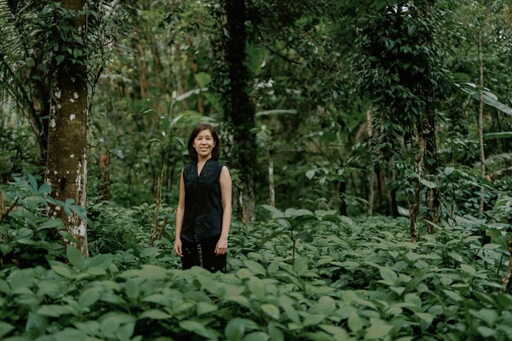In a world defined by extraction, Denica Riadini-Flesch is proving that creation can heal instead. The Indonesian economist-turned-entrepreneur has won UCLA’s 2025 Pritzker Emerging Environmental Genius Award for building a “farm-to-closet” supply chain—a system that regenerates land, restores heritage craft, and empowers rural women. Riadini-Flesch founded SukkhaCitta after an encounter that reshaped her view of progress. As a young economist from Jakarta, she once equated development with growth—an upward line without end. That illusion unraveled when she visited a village where women labored for weeks over textiles only to earn a few dollars, their skin and lungs scarred by synthetic dyes. “It burns my hands, my eyes, my lungs,” one woman told her. The remark revealed what Riadini-Flesch calls “the true cost of convenience.” SukkhaCitta set out to invert that logic. Instead of sprawling factories, production takes place in courtyards and small farms across Java, Bali, Flores, and West Timor. Cotton is grown on mixed plots that regenerate the soil; dyes come from indigo and mahogany leaves; fabrics are woven on handlooms. The enterprise has restored more than 120 acres of degraded land, kept five million liters of toxic dye wastewater out of rivers, and raised women’s incomes by 60 percent on average. The environmental benefits are measurable, but the social ones may matter more. Through decentralized Rumah SukkhaCitta schools, women learn ecological literacy, entrepreneurship, and heritage techniques side by side. Younger generations—once drawn to city sweatshops—are returning home to earn dignified incomes. “Artisans and farmers are the missing link…This article was originally published on Mongabay
From Conservation news via this RSS feed


